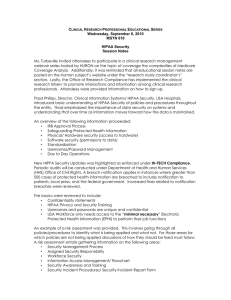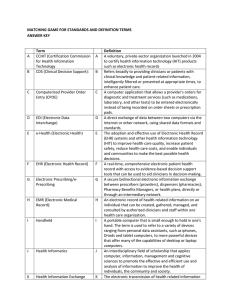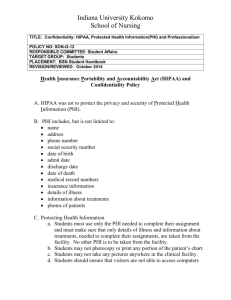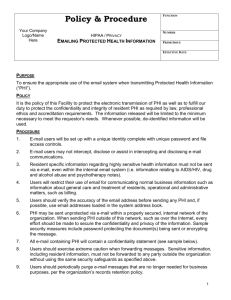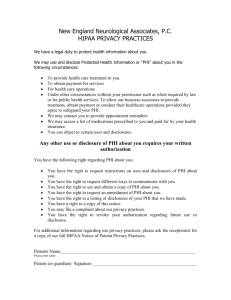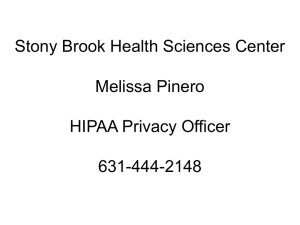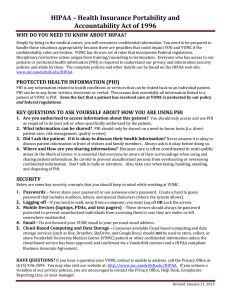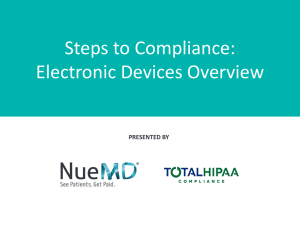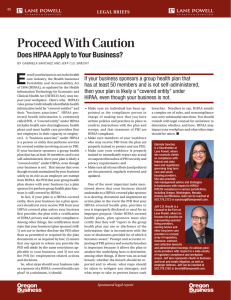Information Security Policies and Standards
advertisement
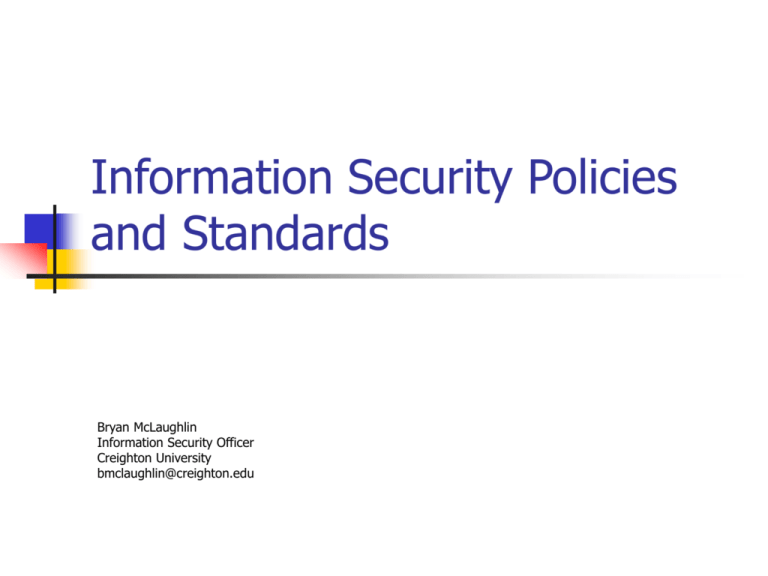
Information Security Policies and Standards Bryan McLaughlin Information Security Officer Creighton University bmclaughlin@creighton.edu The challenges before us Define security policies and standards Measure actual security against policy Report violations to policy Correct violations to conform with policy Summarize policy compliance for the organization Where do we start? The Foundation of Information Security The Information Security Functions Managing Information Security Policies The Purpose Provide a framework for the management of security across the enterprise Definitions Policies Standards High level statements that provide guidance to workers who must make present and future decision Requirement statements that provide specific technical specifications Guidelines Optional but recommended specifications Security Policy Passwords will be 8 characters long Passwords should include one non-alpha and not found in dictionary Access to network resource will be granted through a unique user ID and password Elements of Policies Set the tone of Management Establish roles and responsibility Define asset classifications Provide direction for decisions Establish the scope of authority Provide a basis for guidelines and procedures Establish accountability Describe appropriate use of assets Establish relationships to legal requirements Policies should…… Clearly identify and define the information security goals and the goals of the university. The Ten-Step Approach HIPAA Security Guidelines Security Administration Physical Safeguards Technical Security Services and Mechanisms Minimum HIPAA Requirements Security Administration Certification Policy (§ .308(a)(1)) Chain of Trust Policy (§ .308(a)(2)) Contingency Planning Policy (§ .308(a)(3)) Data Classification Policy (§ .308(a)(4)) Access Control Policy (§ .308(a)(5)) Audit Trail Policy (§ .308(a)(6)) Configuration Management Policy(§ .308(a)(8)) Incident Reporting Policy (§ .308(a)(9)) Security Governance Policy (§ .308(a)(10)) Access Termination Policy (§ .308(a)(11)) Security Awareness & Training Policy(§ .308(a)(12)) Minimum HIPAA Requirements Physical Safeguards Security Plan (Security Roles and Responsibilities) (§ .308(b)(1)) Media Control Policy (§ .308(b)(2)) Physical Access Policy (§ .308(b)(3)) Workstation Use Policy (§ .308(b)(4)) Workstation Safeguard Policy (§ .308(b)(5)) Security Awareness & Training Policy (§ .308(b)(6)) Minimum HIPAA Requirements Technical Security Services and Mechanisms Mechanism for controlling system access (§ .308(c)(1)(i)) Employ event logging on systems that process or store PHI (§ .308(c)(1)(ii)) Mechanism to authorize the privileged use of PHI (§ .308(c)(3)) Employ a system or application-based mechanism to authorize activities within system resources in accordance with the Least Privilege Principle. Provide corroboration that PHI has not been altered or destroyed in an unauthorized manner (§ .308(c)(4)) checksums, double keying, message authentication codes, and digital signatures . Users must be authenticated prior to accessing PHI (§ .308(c)(5)) “Need-to-know” Uniquely identify each user and authenticate identity Implement at least one of the following methods to authenticate a user: Password; Biometrics; Physical token; Call-back or strong authentication for dial-up remote access users. Implement automatic log-offs to terminate sessions after set periods of inactivity. Protection of PHI on networks with connections to external communication systems or public networks (§ .308(d)) Intrusion detection Encryption Policy Hierarchy Governance Policy Access Control Policy Access Control Authentication Standard Password Construction Standard Strong Password Construction Guidelines User ID Policy User ID Naming Standard

